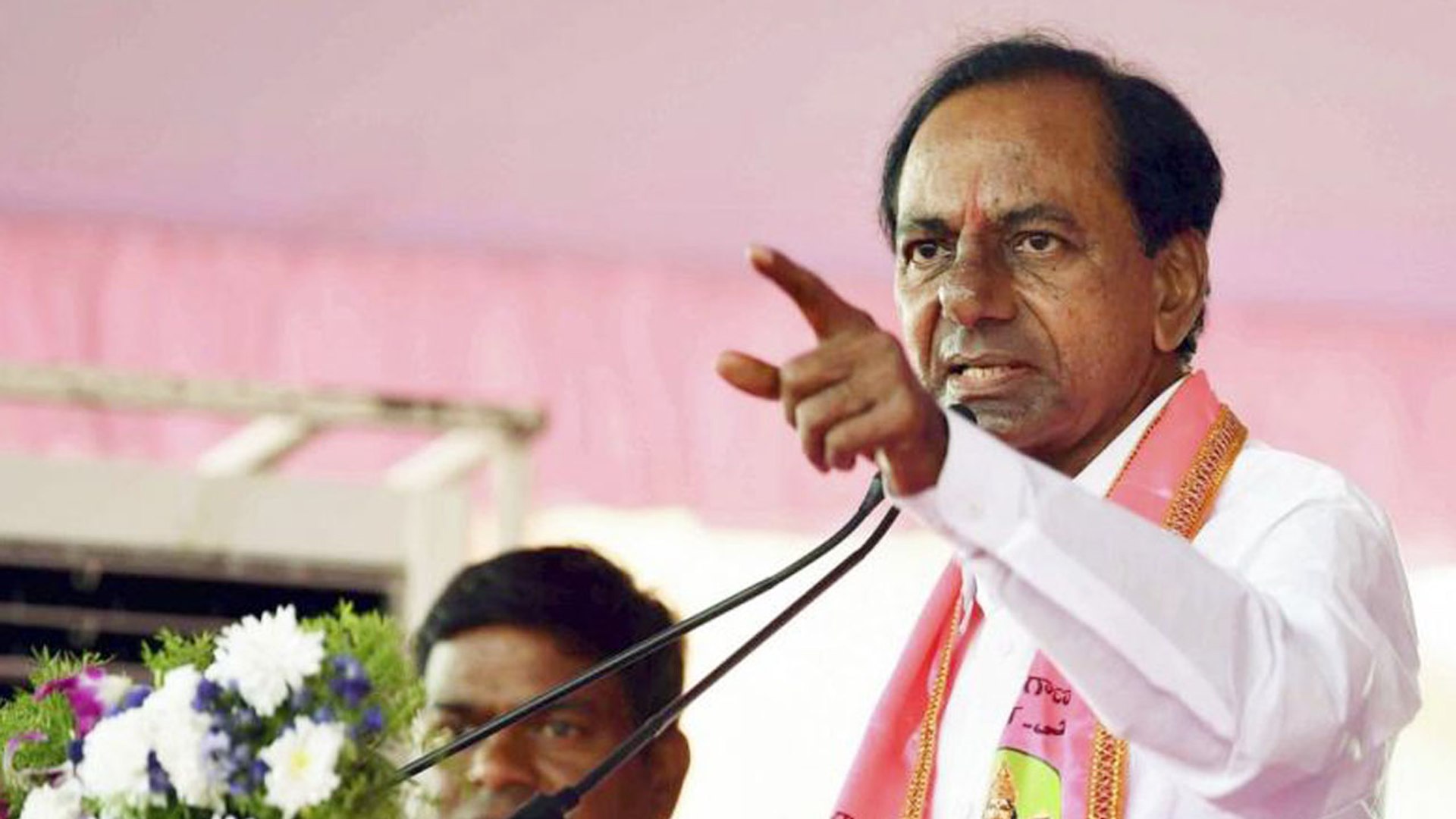
Is Telangana set to become a Congress-mukt state?

During the rallies in the run-up to the December 2018 Assembly elections, Telangana Chief Minister K Chandrasekhar Rao used to end his speeches with a punchline that his Telangana Rashtra Samithi (TRS) would score a century in the 119-member Assembly.
He did secure a second term with a resounding mandate but the tally stopped at 88 seats. However, it won’t take much time for him to touch the 100 mark, with the season of political migrations setting in soon after the declaration of the results.
Steady desertions
The trickle started on December 11, the day poll results were declared, when two independents switched over to the ruling camp. Since then, there has been a steady flow of Congress legislators into the TRS and all of them say their decision was in the interest of their constituencies.
So far, nine out of the 19 Congress MLAs have either crossed over to the TRS or announced their plans to do so. TRS sources say that at least four more legislators are waiting in the wings to switch loyalty. Going by the steady stream of defections, the Congress camp is set to lose the status of the main opposition party in the state Assembly.
‘Congress-mukt’ council
The state legislative council has already become ‘Congress-mukt’, with four of its six MLCs defecting to the TRS while the term of the remaining two ended recently. The Congress needs at least 12 MLAs to retain the Leader of Opposition status in the Assembly. The calculation in the ruling party camp is that once two-thirds of the Congress MLAs leave the party, they can merge their group with the TRS and, thereby, escape the provisions of the Anti-Defection Law.
The nine Congress MLAs who have announced their decision to defect to TRS are — Atram Sakku (Asifabad), Rega Kantha Rao (Pinapaka), P Sabitha Indra Reddy (Maheswaram), Haripriya Banoth (Yellandu), Chirumarthi Lingaiah (Nakrekal), Kandala Upender Reddy (Palair), T Jayaprakash Reddy (Sangareddy), Vanama Venkateshwar Rao (Kothagudem) and Devireddy Sudheer Reddy (LB Nagar).
If the strength of the Congress comes down to six, it will no longer be the main opposition party as the TRS-friendly party All India Majlis-e-Ittehadul Muslimeen (AIMIM) has seven MLAs in the Assembly.
Picture of contrast
While KCR, fresh from the resounding public mandate in the Assembly polls, kicked off his party’s campaign for the Lok Sabha elections on a high note from Karimnagar town on March 17, the Congress camp presented a contrasting picture of gloom and despondency. The party is finding it increasingly difficult to keep its flock together. If it was voters who comprehensively rejected the party’s negative agenda in the Assembly elections, it is now the turn of its own legislators to leave the sinking ship.
Several factors have contributed to the present existential crisis of the Congress. Despite granting statehood for Telangana during the UPA-II in 2014, the grand old party failed to capitalise on it. It allowed KCR to walk away with all the credit and reap electoral benefits by positioning himself as the architect of the new state. The party could win just two LS seats in the 2014 elections while the TRS walked away with 12. It was a poor show in the Assembly polls as well, with the opposition party managing to win 21 seats.
The absence of a strong and charismatic regional leader with a statewide appeal had a telling effect. The party, over years, failed to nurture strong regional leaders who could take independent decisions and stand up to emerging formidable regional players. Added to the party’s woes were fierce infighting and groupism, and lack of a cohesive campaign strategy.
The TRS played the ‘Telangana pride’ card to the hilt. As a result, the Congress suffered badly because of its alliance with the Chandrababu Naidu-led Telugu Desam Party (TDP), widely seen as an ‘enemy of Telangana’. On the other hand, the BJP, a fringe player at best, has been further weakened following the failure of the NDA government to fulfill the promises made at the time of bifurcation.
Regional aspirations hold sway
The TRS stresses on the theme of federalism and the need to strengthen the voice of regional parties in the Parliament to end the domination of the two national parties. It hopes to repeat its Assembly performance and sweep the Lok Sabha polls, and is eyeing to capture 16 of the 17 seats in the state, while leaving Hyderabad LS seat to its ally AIMIM, whose president Asaduddin Owaisi has been representing the constituency since 2004.
“If the need arises, I will launch a national party. The country needs to be unshackled from the misrule of both BJP and Congress, and I will fight for this goal till the last drop of my blood,” said KCR, who initially floated the idea of a ‘federal front’.
The TRS’ calculation is that the coming elections would throw up a “1996-type fractured mandate” and the federal front of regional parties would be able to play a decisive role in government formation. “Regional aspirations will find greater resonance in such a coalition arrangement at the centre,” said KCR’s son, KT Rama Rao, who is also the working president of TRS.
Since the Congress is his principal adversary in Telangana, KCR is averse to associating himself with any formation at a national level with it as a partner. He reckons that post-elections, regional parties will get to play a greater role in the formation of the central government and shaping its agenda.

